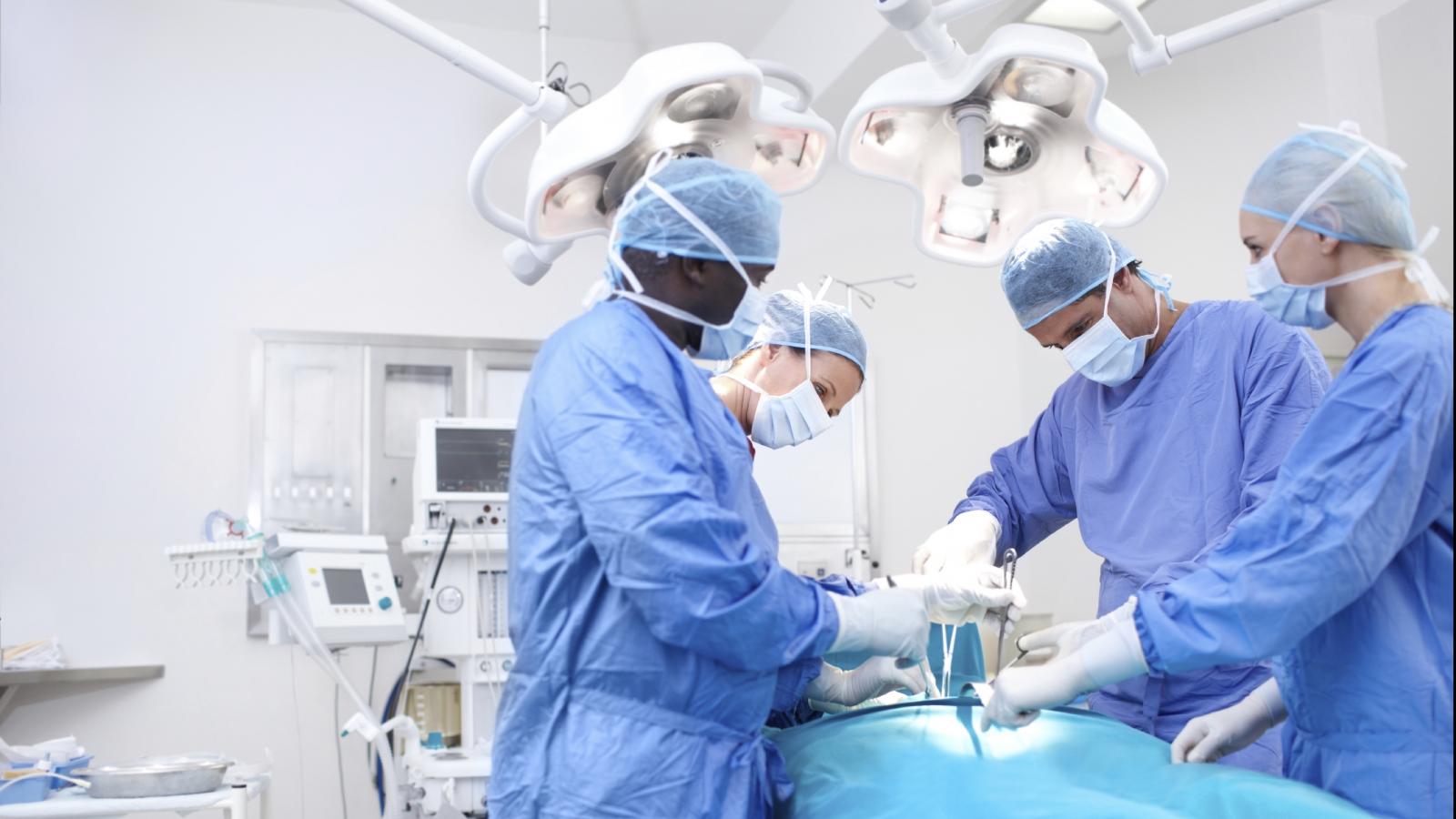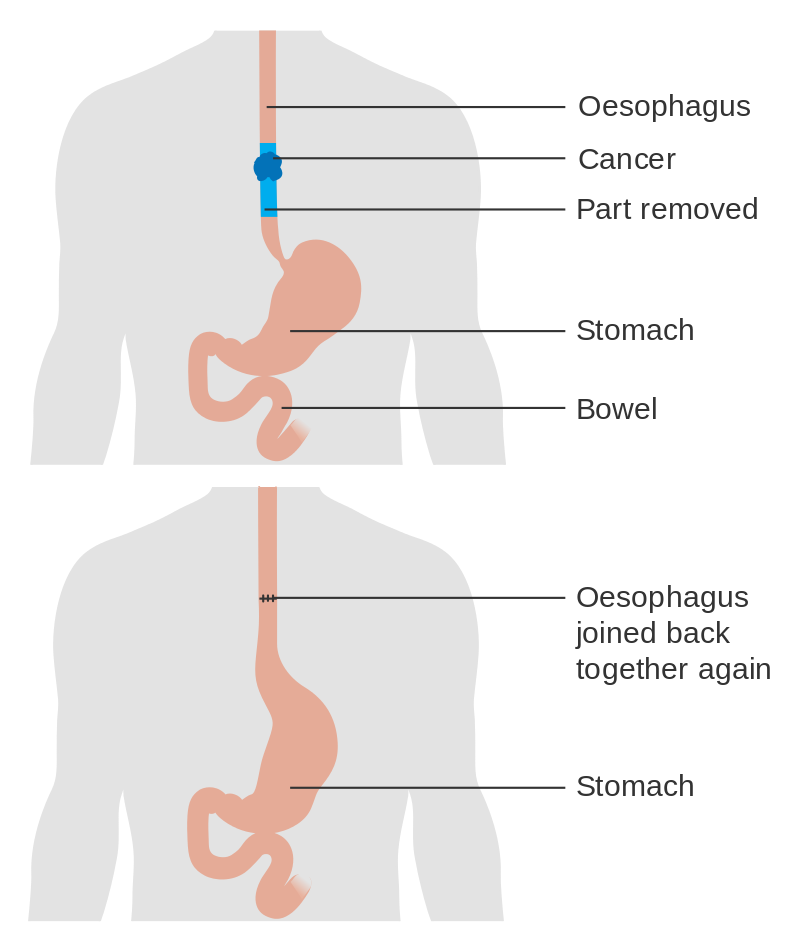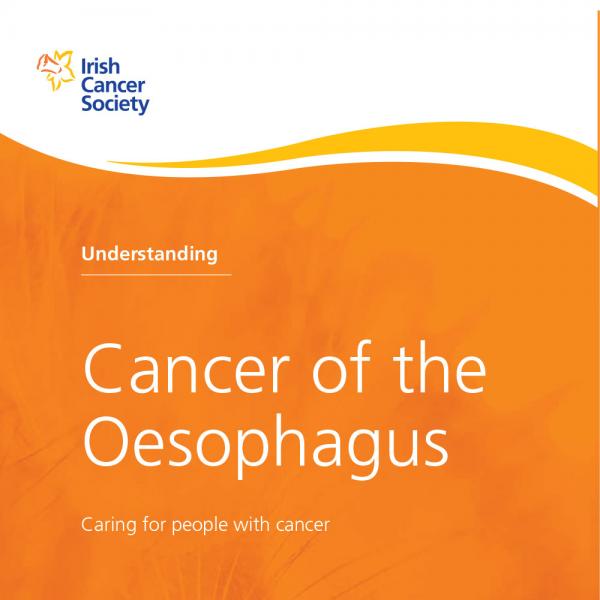Surgery for oesophageal cancer

On this page:
Surgery is the most common treatment for cancer that hasn’t spread outside the oesophagus. You’ll have tests before surgery to make sure you are well enough. Read more about getting ready for surgery.
Types of surgery
Your surgeon may remove the whole oesophagus or just the part that has cancer. It depends where the cancer is.
Because the oesophagus is a long tube going from one body part to another, the surgery can be done in different ways. Your surgeon may need to make a cut (incision) or cuts in your chest, tummy (abdomen) or neck to remove the tumour, depending on where it is.
Oesophagectomy
The part of your oesophagus with cancer is removed, along with lymph nodes and nearby soft tissues. The surgeon pulls up your stomach and joins it to the remaining part of your oesophagus. Rarely it’s not possible to join your stomach to the remaining part of the oesophagus. In this case, a section of your bowel (colon) will be used to replace part of the oesophagus.

Oesophago-gastrectomy / extended total gastrectomy
If the cancer has spread to your stomach, the upper part of your stomach can be removed, as well as the affected part of your oesophagus. This is called an oesophago-gastrectomy. A piece of bowel may be used to join the remaining part of your oesophagus to your small bowel.
If more of the stomach is involved than the oesophagus, sometimes the whole stomach is removed and the
remaining oesophagus is joined to the small bowel (called an extended total gastrectomy).
Pharyngolaryngo-oesophagectomy (PLO)
This is an operation to remove the uppermost part of the oesophagus and the voicebox (larynx) to treat very high upper cancers of the oesophagus or pharyrnx.
Removal of lymph nodes (lymphadenectomy)
During the surgery your surgeon will take out some of the lymph nodes from around your oesophagus. This is called lymphadenectomy. If the lymph nodes contain cancer, removing them can help to stop it spreading and may help guide further treatment. The lymph nodes removed will be looked at under a microscope to give your doctor more information about the stage of your cancer.
After oesophageal surgery
- For a few days you will be in the intensive care or high-dependency unit.
- You may be fed through a tube in your small intestine until you can eat normally again.
- Most people are ready to go home 10–14 days after surgery.
Read more about recovering after surgery.
Starting to eat and drink again
For the first few days after your operation, you will usually not have anything to eat by mouth until your surgeon is happy that the operation site has healed satisfactorily. If you had a feeding tube inserted during your surgery, you will be fed through this from the day after surgery to meet your nutritional requirements.
Once the surgeon is happy, you will start on fluids by mouth first and this will then be increased gradually over a number of days. When you are managing fluids, you can start to eat small amounts of soft food.
Eat slowly and chew your food well to help you to feel more confident with swallowing.
Your dietitian will be there to support you and advise you on what foods to eat, to make sure you’re getting enough calories and nutrients.
Once you begin to eat and drink reasonable amounts, you will just be fed by tube at night. This will continue when you go home. You, along with your family or friend, will be trained on how to manage your feeding tube before you go home.
It may take a while before you get back to normal eating and drinking. It depends on the type of surgery you have and the time it takes for your wounds to heal. You might experience:
• Feeling full and uncomfortable after eating only small amounts
• Having little or no appetite
• Weight loss
• Nausea and vomiting
• A change in your bowel habit e.g. diarrhoea or constipation
Weight loss
It’s normal to lose some weight after surgery. This usually improves in time, although you may not get back to the weight you were before surgery. The dietitian and other members of the team will help you to manage your weight and support you with any eating problems.
We have more information on eating problems, or you can read our booklet Diet and Cancer.
More information
There's more information on recovering from surgery in our oesophageal cancer booklet. Download the booklet below, order a copy from our Support Line on 1800 200 700 or pick one up in a Daffodil Centre.

For more information
Phone
1800 200 700



